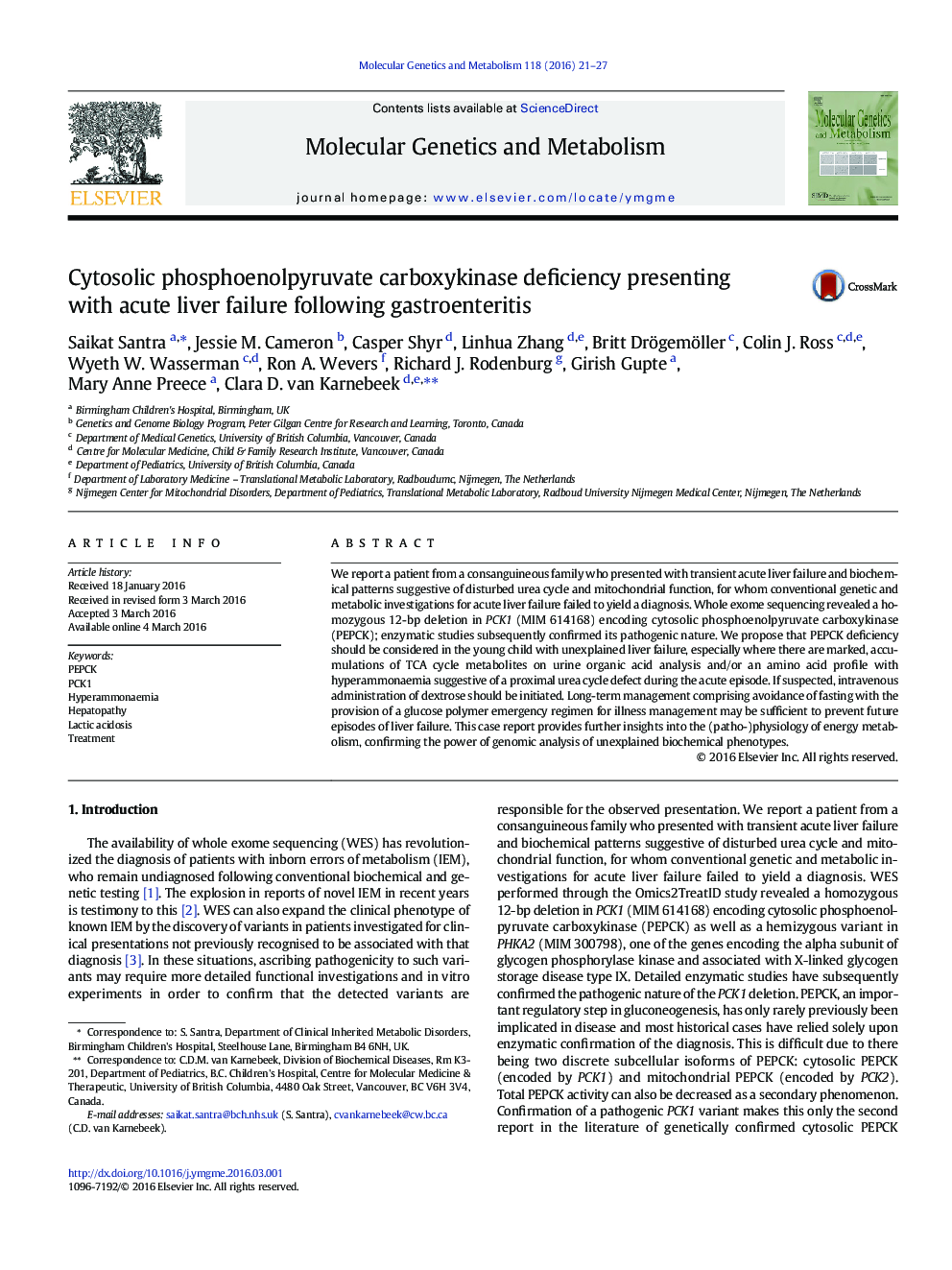| Article ID | Journal | Published Year | Pages | File Type |
|---|---|---|---|---|
| 1998237 | Molecular Genetics and Metabolism | 2016 | 7 Pages |
•PEPCK deficiency should be considered in the young child with unexplained liver failure.•Metabolite accumulation suggesting acute TCA cycle and/or proximal urea cycle dysfunction may indicate PEPCK deficiency•If suspected, intravenous administration of dextrose should be initiated and metabolic abnormalities may rapidly improve.•Fasting avoidance and the use of a glucose polymer emergency regimen may prevent future episodes of liver failure.
We report a patient from a consanguineous family who presented with transient acute liver failure and biochemical patterns suggestive of disturbed urea cycle and mitochondrial function, for whom conventional genetic and metabolic investigations for acute liver failure failed to yield a diagnosis. Whole exome sequencing revealed a homozygous 12-bp deletion in PCK1 (MIM 614168) encoding cytosolic phosphoenolpyruvate carboxykinase (PEPCK); enzymatic studies subsequently confirmed its pathogenic nature. We propose that PEPCK deficiency should be considered in the young child with unexplained liver failure, especially where there are marked, accumulations of TCA cycle metabolites on urine organic acid analysis and/or an amino acid profile with hyperammonaemia suggestive of a proximal urea cycle defect during the acute episode. If suspected, intravenous administration of dextrose should be initiated. Long-term management comprising avoidance of fasting with the provision of a glucose polymer emergency regimen for illness management may be sufficient to prevent future episodes of liver failure. This case report provides further insights into the (patho-)physiology of energy metabolism, confirming the power of genomic analysis of unexplained biochemical phenotypes.
